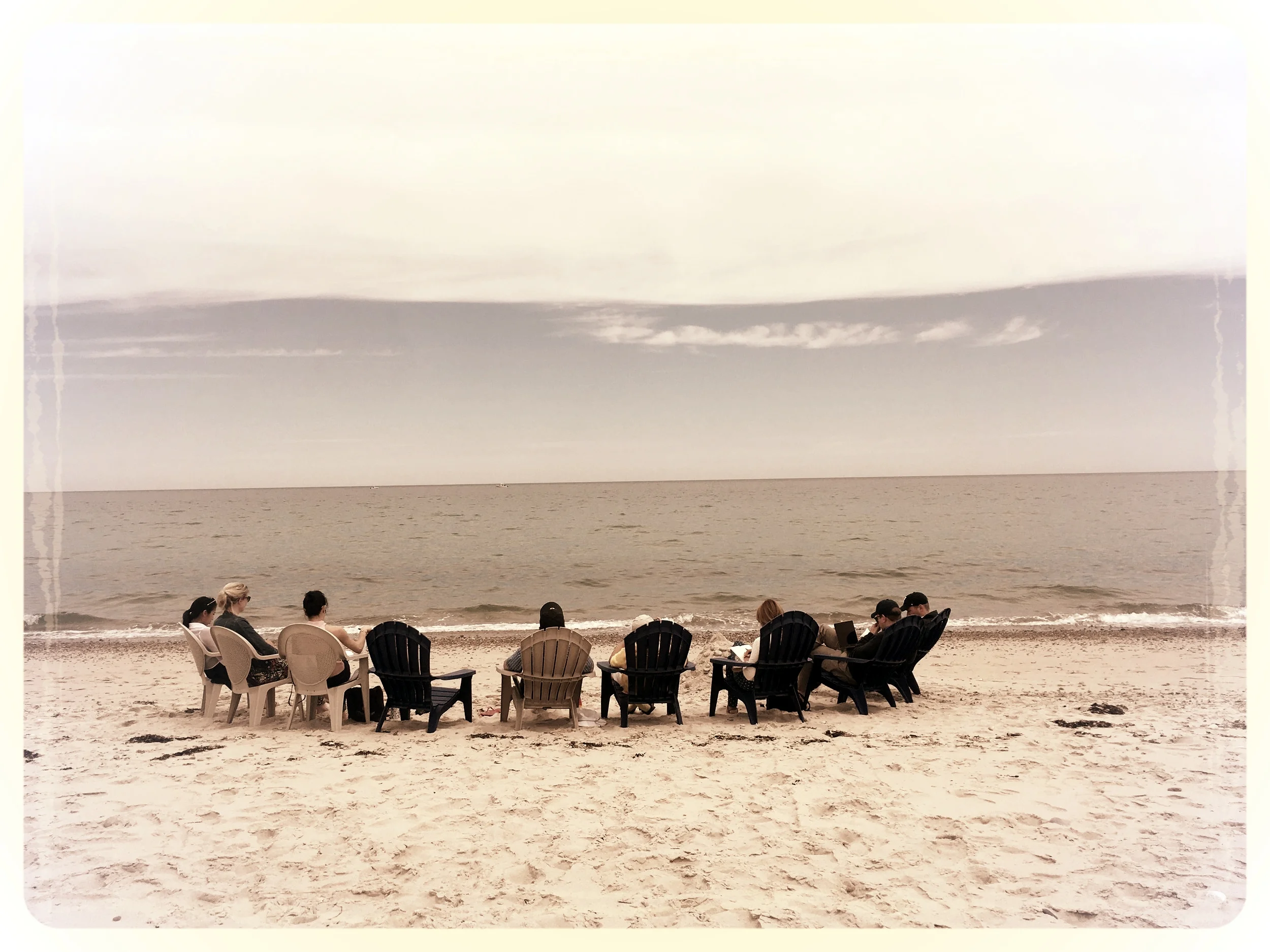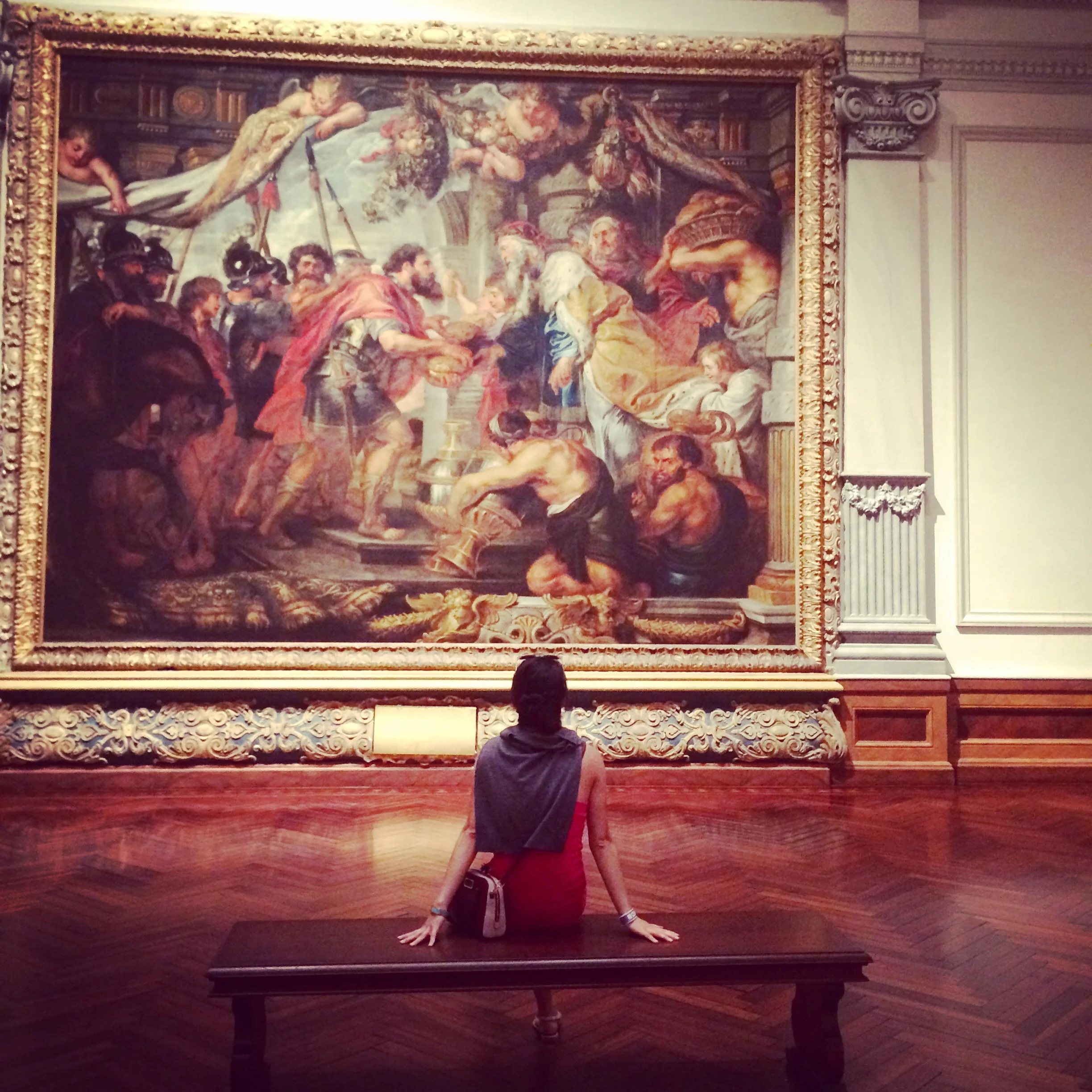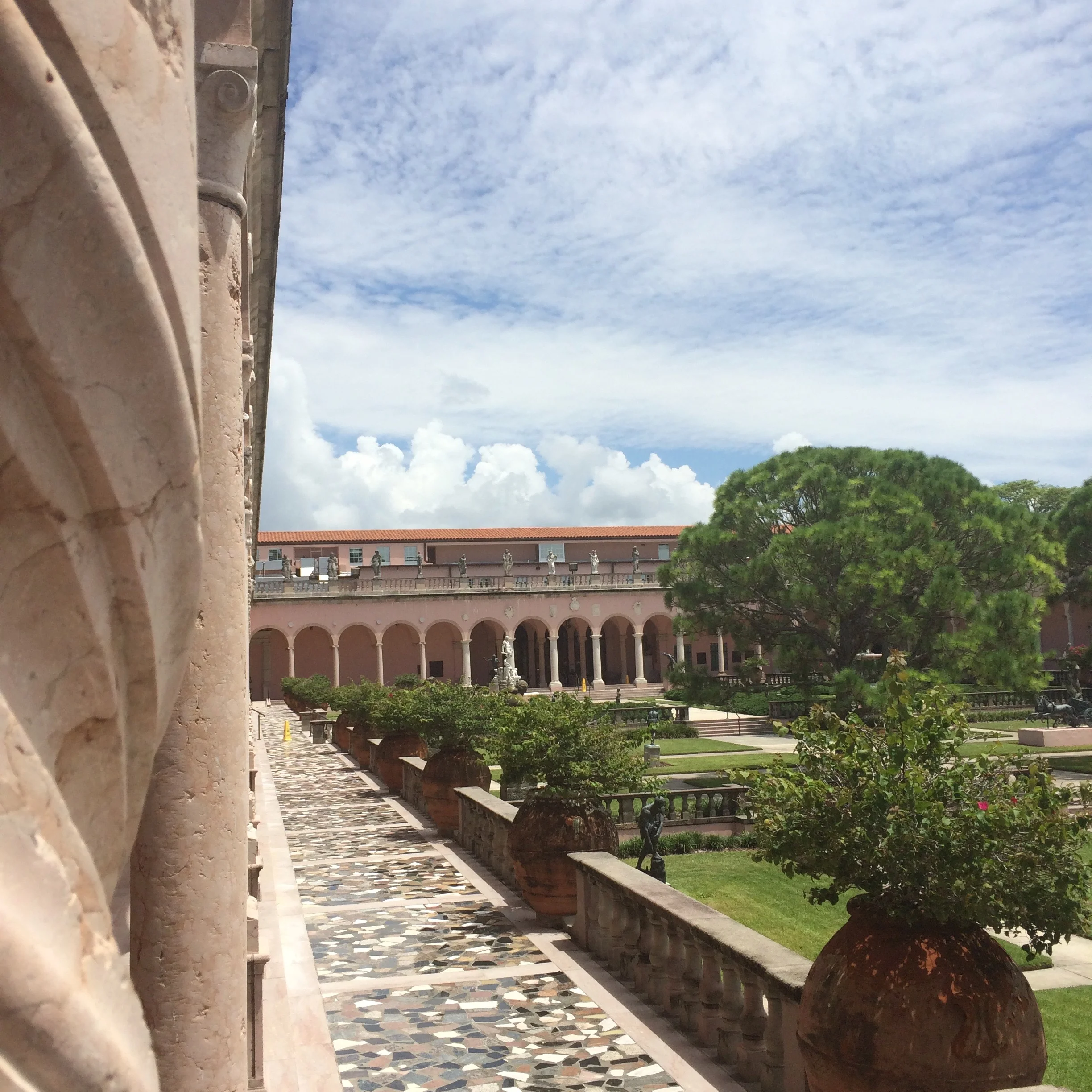For the majority of people, a New Year's Resolution is formed, well, at the start of a New Year in January. For educators and students, that new year often emerges the end of August. This end of August marks a momentous new year for me, as, for the first time in six years, I will not be starting off the new year as a teacher of high school students, but as a full-time doctoral student at Columbia Teachers College. Despite the new title I now have, I believe my daily routine will not be too different--- after all, as educators, we are eternal learners.
In recent years, I have noticed an increased emphasis on the importance of leadership in schools, in colleges, in the workplace, in politics, etc. The notion of a leader is perplexing, and as a young girl, leadership was something I couldn't quite grasp. Was I a leader? Could I ever be one, being the shy, introverted, soft-spoken person I am? I did not think so, for in those early years, no one in my immediate surroundings who was considered a leader showed any resemblance to me.
I feel optimistic to say that the notion of a leader in the 21st Century has shifted to become more encompassing, for the better. There is, however, still much work to be done in the realm of increasing diversity in the faces we associate with leadership. Women are still underrepresented in leadership roles, as are ethnic minorities, as well as introverted individuals. We need to keep pushing the boundaries of leadership.
With that said, I'm sharing with you a "speech" of sorts that I delivered at the National Honor Society Induction Ceremony at my former school in Connecticut. I hope my message resonates with you and prompts you to reflect on your own experiences, ambitions, and talents, while also inspiring you to embrace who you are and to live up to your full potential.
For those who prefer to listen to a reading of the speech (by me, Catherine Cheng), please click the link below. Please note that this is an informal recording of the speech, not the actual official recording. The full transcript of the speech is shown below. Hope this inspires and empowers you a bit! :)
National Honor Society Induction Ceremony Keynote Speech
"Emergence of the Quiet Leader:
Empowering Introverts in Our Increasingly Loud Society"
Catherine Y. Cheng: 2018 Connecticut Teacher of the Year for Region 9
Good evening.
Dear honored faculty and esteemed administrators, dear proud parents, siblings, extended family and friends, and lastly, dear honored inductees to the National Honor Society.
First and foremost, I would like to congratulate each and every one of you on your individual achievements that have brought you here this evening. In your own way, you stood out among all others in the realms of scholarship, character, service, and leadership. I feel honored to be standing among you as you are inducted into this prestigious society.
About a decade ago, I was sitting where you are sitting right now. I remember thinking about the four pillars upon which the National Honor Society is built. The pillar that struck me most then and that continues to stimulate much reflection today is leadership.
What makes a leader?
This is indeed a very complex question—one that, if you were to ask 100 different people, you might get 100 varied responses. Here is my perspective on leadership:
- First, leaders are not born into their leadership roles.
- Second, leaders can be young or old, big or small, introverts or extroverts, experienced or just starting out.
- Third, leadership can only function in the setting of a group; you cannot lead alone.
Let me take a couple of minutes to elaborate on each of these three points.
One, leaders are not born into their leadership roles.
Take a moment and imagine what the majority of society might think of when one thinks of a leader. For many, the word “leader” might evoke the image of a legendary actor who readily plays the role of a hero on screen, or a successful NFL quarterback who leads his team to victory season after season, or a general who commands hundreds of troops. Were these individuals born into the leadership roles they are known for today? I highly doubt it. Unfortunately, these images perpetuate the fiction that leaders must possess certain innate qualities that are unattainable to many of us.
How did these individuals become leaders? A legendary actor only becomes well known after endless auditions (some of which likely resulted in failures) and multiple smaller roles. An NFL quarterback must go through hundreds, if not thousands, of hours of practice to master the skills he is respected for. A general often has to go through the painful experience of war to become a truly impactful leader. These individuals all have their own stories and hardships that may not be apparent from a cursory glance at their outward success.
"We must dispense with the idea of the 'born leader,' and instead
redefine leadership as a role we each can play."
-Catherine Cheng
Each of you has told your own story about how you have grown to become a leader in our school and community. As one of the advisors of the National Honor Society, I had the privilege of reading your individual applications, and I want to share a couple of impressions. Sitting among us this evening are individuals who have devoted much of their high school time to service through community youth groups, and both local and national charities, as well as individuals who are committed to motivating and advocating for teammates on and off the field. Sitting among us are peers who have steadily risen through the ranks to hold prominent student office and academic club positions, as well as peers who have catapulted into the limelight, having gathered up the courage to run for a public position. Still among us are quiet leaders who orchestrate the activities of the group from behind the scenes, rarely calling attention to themselves but working just as tirelessly to ensure the success of the team.
In these varied examples, there is one thread which runs through them all: We need to dispense with the idea of the “born leader,” and instead redefine leadership as a role we each can play.
This year, I was recognized as our district’s Teacher of the Year—an honor that carries enormous meaning for me—an honor that I will cherish in the years to come. It is an honor that has brought me here to share this very special evening with all of you. Before I move on to my second point, I would like to share with you a little bit about my journey to the role I play in this community.
If you would have asked me a decade ago if I could envision myself speaking in front of a large audience, I would have immediately said it is completely impossible. And here I am, in front of you right now, delivering this speech I never thought I would have the courage for. The truth is, I am still terrified of public speaking, and it is a fear that I know I will be battling for much of my life. But it is a fear that I am overcoming day by day. The key is to expose yourself in small doses to whatever it is that you fear, and it is only a matter of time before you can conquer it.
I believe my journey to becoming a teacher, and to becoming the 2018 Teacher of the Year, is a rather unconventional one. I was certainly not born into this leadership role, and I do not recall growing up having the desire to be a leader. In fact, from an early age the word “leader” would conjure up images of physically big and tall, vocal, and self-confident individuals. I associated leaders with extroverts, and as a born introvert (one near the extreme end of the spectrum), I did not think there was “leader” material in me.
My emergence as a leader was complicated by the reality that, for much of my life growing up, I felt like an outsider. My personal story is one shaped by my first generation immigrant parents who left China in pursuit of further education, a brighter future, and more work opportunities. As much as I tried to glamorize my worldly travels at a young age, they were often rough, characterized by language barriers, cultural boundaries, and an enduring feeling of not belonging anywhere. With each new beginning, my “outsider” tag did not make life easier, but it taught me resilience, helped build character, and importantly, allowed me to see and relate to those who struggle in every sense of that word.
To be part of the minority is to be part of the underrepresented, unheard, misunderstood—and that goes beyond race, sexual orientation, and socioeconomic standing. It was at my alma mater, being surrounded by poised, intelligent, and strong-willed women, that I finally felt I had became part of the majority. It was there where, as a true introvert, I found my voice and discovered both my passion and gift in teaching. Since then, I have harnessed my passion and my voice (as quiet as it is) each day to empower the young women and men in my life.
I was not born a leader; I emerged as one.
My second point for this evening: Leaders can be young or old, big or small, introverts or extroverts, experienced or just starting out.
Let’s go back to the picture of the dynamic actor, the prominent quarterback, and the commanding general. While all three individuals are unmistakably leaders, this picture of leadership is very one-dimensional and does not fully capture the complexity of leadership in the 21st Century. Misguided assumptions about what leaders look like deprive talented people from assuming important roles and impoverish organizations, from local high schools to state and private colleges to global companies. I am happy to state that there is considerable diversity in our own students inducted this year, in terms of gender, degree of introversion and extroversion, and passions and involvement in our community.
As for me, I’m far from the classic picture of a leader: I am neither physically commanding nor particularly loud. By default, I prefer the sidelines to the center stage. My own experience is living proof, however, that we can all become leaders, regardless of our personality, age, gender, race, or ethnicity.
Now to my third and final point: Leadership can only function within relationships; you cannot lead alone.
Effective leaders recognize how the skills of others complement theirs. Similarly, they acknowledge their own limitations and imperfections and welcome corrective input. True leaders accept that they have prejudices, which left unchecked, could keep them from building teams with diverse talents and perspectives. Anyone who is involved in or follows a team sport knows that you are only as good as the sum of your parts. No matter how extraordinary one player is, one person can’t be a team. Great leaders are those who can make the sum of the whole greater than the sum of the parts. With great leadership, teams reach their full potential.
"Great leaders are those who can make... the whole greater than the sum of the parts.
With great leadership, teams reach their full potential."
-Catherine Cheng
My favorite team to follow is the German national soccer team. This is not only because my boyfriend is German, but also because that team, in my mind, defines excellent teamwork. I still remember the last world cup in 2014 and how awestruck I was by how the players of the German team moved as a coherent unit across the field—-making seamless passes from one person to the next, like electrons along the electron transport chain. Yes—I had to insert at least some science nerdiness! Said simply, it’s the teamwork that makes the dream work.
I know I certainly could not have become Teacher of the Year on my own. When I came to Barlow 5 years ago, I considered myself extremely fortunate to be working alongside veteran colleagues who embody the very best in education. Until this day, I am inspired by their influential teaching, their professionalism and uplifting energy, and most importantly, their genuine commitment to our shared students. In the words of Hillary Clinton, “It takes a village to raise a child.” I would also add, however, that it takes a community of dedicated, talented, and empowered individuals to build a leader.
Lastly, the greatest inspiration for my teaching comes from all of you, as students.
You shed light on my shortcomings in teaching and propel me to reflect, to refine my practice, and to grow professionally. Like every teacher, I have had failed lessons and have experienced the guilt that comes with letting students down. As part of my own self-discovery through teaching and learning, I have come to understand that to be successful is not an ultimate stage in life, but rather a process and a mindset that one engages in each day. Success as a leader begins with defining yourself and what you believe in. My drive to teach stems from my belief in the transformative power of my authentic interactions with students. As teachers, we have the power to shape the minds and warm the hearts of students whose lives become intertwined with ours during the shared hours of each school day. To me, it is important to give back to the community that supported me and to model an appropriate mindset of leadership and success for our future generations.
"...to be successful is not an ultimate stage in life, but rather a process and a mindset
that one engages in each day. Success as a leader begins with defining yourself and what you believe in."
-Catherine Cheng
One of the core missions of our education system is to develop leaders in all areas of society. Some of you will become leading scientists, engineers, and health professionals; some of you will become educators, administrators, and policy makers; still others will become leaders in the arts and media and the global community. In your own meaningful way, you will make a positive difference in our society. But right now, each of you, as a student leader, has the power to impact change on a personal level. Each person here has the power to be kind, the power to give others a fair chance at their own success, and the power to make each other feel valued and empowered.
Inducted honorees— from a fellow teacher to her students and advisees, here are the take-home points from my lesson to you this evening:
First, there are no born leaders.
Second, leaders are incredibly diverse.
Third, leaders don’t exist in isolation; they represent and take inspiration from others in the group.
Taken together, in the words of the famous introverted leader who led a quiet revolution Mahatma Gandhi: “In a gentle way, you can shake the world.” Congratulations to all of you. Welcome to the National Honor Society!
In case you are curious, all of these pictures were taken at the Ringling Museum in Sarasota, Florida. All pictures are my own.




